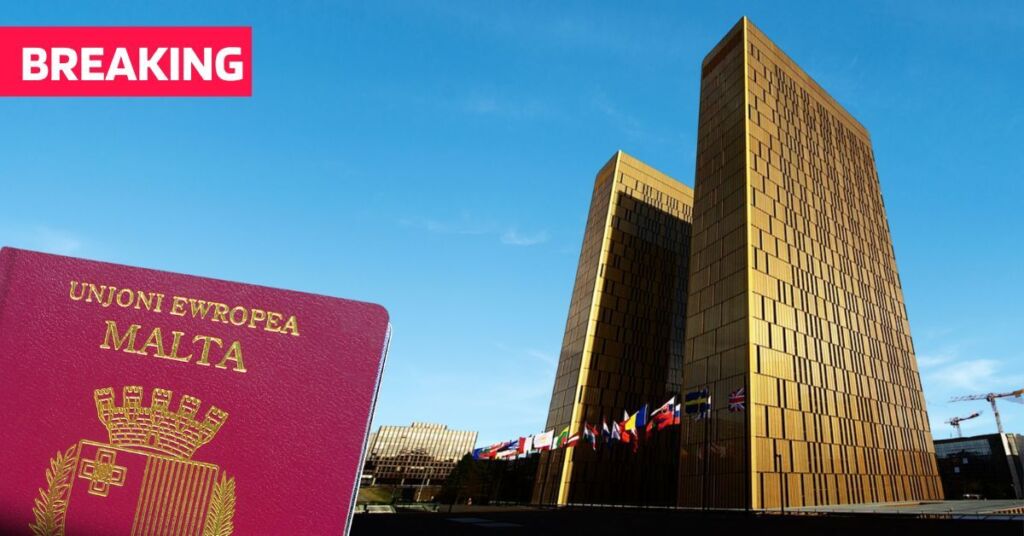
Malta’s golden passport scheme has been found to be in violation of European Union law, the European Court of Justice (ECJ) ruled on Tuesday morning.
The European Commission took Malta to court over its citizenship by investment scheme, which was first launched in 2014, arguing that the sale of Maltese citizenship – and by extension, European citizenship – was in breach of the Treaty of the EU.
In a ruling handed down on Tuesday morning, the ECJ agreed with the European Commission, saying that Malta’s scheme amounts to “the commercialisation of the granting of the nationality of a member state and by extension that of union citizenship.”
The ECJ ruled therefore that Malta had failed to fulfil its Treaty of the EU obligations.
Malta’s citizenship-by-investment scheme – which is nicknamed as a ‘golden passport’ scheme – was introduced in 2014 under the moniker of the Individual Investor Programme, with the ultra-wealthy being able to buy Maltese citizenship for something around the range of €1 million, together with property commitments.
The scheme has been vehemently defended by the Labour government which introduced it, which argued that it has brought a much-needed injection of cash into Malta’s economy and that citizenship was a national competence, but also criticised within the European Union over concerns that the scheme undermines the bloc’s borders.
The scheme has now been rebranded as the ‘Maltese Citizenship by Naturalisation for Exceptional Services by Direct Investment’.
It attracted a legal challenge from the European Commission which argued that there was no “genuine link” between golden passport holders and Malta and that Malta was therefore not fulfilling its obligations under the Treaty of the EU when it comes to citizenship and the principle of sincere cooperation.
In its judgment, the ECJ ruled that while “the definition of the conditions for granting and losing the nationality of a Member State is a matter of national competence, that competence must be exercised consistently with EU law.”
Summarising the judgment in a statement issued to the media, the ECJ’s press office noted that the ruling stated that “neither the wording of the Treaties nor their scheme can support the inference that their authors intended to lay down, as regards the grant of the nationality of a Member State, an exception to the obligation to comply with EU law.”
“European citizenship guarantees free movement within a common area of freedom, security and justice. That common area is based on two essential principles: mutual trust between Member States and mutual recognition of national decisions. European citizenship embodies fundamental solidarity between Member States, based on a set of reciprocal commitments. Each Member State must therefore refrain from any measure that could undermine the EU common objectives, in accordance with the principle of sincere cooperation,” it continued.
It continued that schemes such as that of Malta had effectively rendered the acquisition of a national as a “mere commercial transaction”, adding that such a practice goes against the bond of solidary and good faith a state and its citizens, and also against the mutual trust between member states.
With the ECJ finding that Malta has breached EU law, Malta now has an obligation to comply with the court’s judgment “without delay.” Failure to do so may result in further action, which may include financial penalties.
Malta’s citizenship by investment scheme was introduced by former Prime Minister Joseph Muscat in 2014 and has since been at the centre of several controversies, particularly as it was clear that passport buyers had no actual tangible links to Malta.
A collaborative media investigation, which included The Malta Independent, had revealed the scoring system used by regulators to see whether applicants had established these so-called “genuine links” to Malta.
The investigation showed that applicants were encouraged to satisfy the items – which included different things, such as the purchase or rent of property, the purchase or renting of a vehicle, a donation to a local charity, membership in a local club or organisation, and the creation of a bank account – on the checklist.
The ECJ’s ruling came as a slight surprise on the basis that the EU’s Advocate General last October had backed the Maltese government’s arguments in his legal opinion on the case.
Advocate General Anthony Collins noted that the issue of nationality falls under the sovereignty of individual member states, which retain the right to set their own conditions to grant citizenship.
Collins said that the Commission had failed to prove that EU law actually imposes an obligation for there to be genuine links between a country’s citizenship and that country, noting that while EU law governs several aspects of citizenship – the conditions for acquiring it are not among those aspects.
He had concluded that Malta’s scheme does not breach EU law just as long as it adheres to the country’s own legislation.
His opinion is not legally binding, but it usually carries significant weight when it comes to the final ruling being handed down at the European Court of Justice.
The Maltese government had welcomed the statement as validating Malta’s position on the matter – but the ECJ seems to have thought otherwise.












